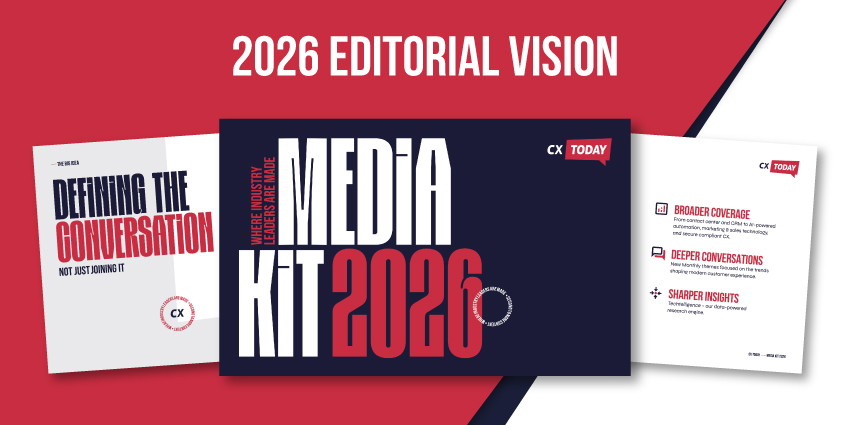Delivering great customer experiences isn’t just about crafting the most engaging campaigns. It’s also about navigating the intricate web of industry standards and regulatory requirements that govern your operations. As a CX professional, understanding and adhering to these standards is crucial for several reasons.
The Role of Industry Standards in CX
Industry standards serve as the backbone of a robust CX strategy. They provide a framework for consistency, quality, and reliability that customers have come to expect.
Moreover, industry standards are pivotal in protecting customer data and privacy. In an era where data breaches and privacy concerns are rampant, demonstrating compliance with relevant standards can differentiate your brand as a trustworthy and responsible entity.
Finally, industry standards can streamline your operations. They can lead to improved efficiency, reduced errors, and enhanced overall performance.
What Are the Important Regulatory and Industry Standards for CX Pros to Remember?
To effectively navigate the world of CX, you need to be aware of a few key standards:
1. General Data Protection Regulation (GDPR)
The GDPR is a comprehensive law that governs how organizations handle personal data of EU citizens. It emphasizes transparency, data security, and individual rights, requiring businesses to implement stringent measures for consent and data protection.
2. California Consumer Privacy Act (CCPA)
The CCPA provides California residents with enhanced privacy rights and control over their personal information. It mandates businesses to disclose data collection practices and offer opt-out options for data sharing.
3. Payment Card Industry Data Security Standard (PCI DSS)
PCI DSS is a set of security standards designed to ensure that all companies processing, storing, or transmitting credit card information maintain a secure environment. Compliance with PCI DSS is critical for protecting customer payment information.
4. Health Insurance Portability and Accountability Act (HIPAA)
For CX professionals in the healthcare sector, HIPAA sets the standard for protecting sensitive patient data. It requires robust data security measures and governs how patient information is handled.
5. ISO 9001: Quality Management Systems
ISO 9001 outlines the criteria for your quality management system. It is based on principles such as strong customer focus, involvement of top management, and continuous improvement. Compliance with ISO 9001 can enhance your CX by ensuring consistent quality in your services.
6. SOC 2: Service Organization Control
SOC 2 is an auditing procedure that ensures your service providers manage your data to protect the interests of your organization and the privacy of its clients. It is crucial for demonstrating trust and compliance in data management.
5 Qualities You Need to Navigate Industry Standards Effectively
The art of compliance requires a blend of skills and attributes. Here are seven qualities you need to develop:
- Attention to detail: Meticulous attention to detail is crucial for understanding and implementing complex regulatory requirements. Overlooking small details can lead to compliance failures and potential penalties.
- Technical proficiency: Being technically proficient allows you to leverage tools and technologies that facilitate compliance. Understanding how to implement security measures and data protection protocols is essential.
- Ethical judgment: A strong sense of ethics ensures that you prioritize customer privacy and data protection. Ethical judgment guides your decision-making processes and helps build trust with customers.
- Adaptability: Regulatory landscapes are continually evolving. Being adaptable allows you to stay ahead of changes and adjust your strategies accordingly to maintain compliance.
How CX Technology Can Help Comply with Industry Standards
Leveraging the right tools can simplify the process of complying with industry standards. Here are some ways CX technology can assist:
1. Data management systems
Advanced data management systems can help you organize, store, and protect customer data in compliance with GDPR, CCPA, and other regulations. These systems often include features like encryption, access controls, and audit trails.
2. Automated compliance tools
Automation can streamline compliance processes by continuously monitoring your operations for adherence to standards. They can alert you to potential issues before they become significant problems.
3. Customer relationship management (CRM) software
CRM software can enhance customer data management and ensure that all customer interactions comply with relevant regulations. Features like consent management and data anonymization can help meet GDPR and CCPA requirements.
4. Accessibility tools
To comply with the Americans with Disabilities Act (ADA), using accessibility tools that ensure your digital content is accessible to all customers is crucial. These tools can help you identify and rectify accessibility issues, ensuring a seamless experience for all users.
Practical Tips to Master Regulatory Compliance
Mastering regulatory compliance requires a strategic approach. Here are some practical tips to help you stay on top of your compliance obligations:
- Stay informed: Regulations are constantly evolving. Regularly monitor industry news, join professional organizations, and participate in relevant training programs.
- Conduct regular audits: Regular audits can help you identify compliance gaps and address them proactively. Audits should cover all aspects of your operations, from data management to customer interactions.
- Develop a compliance culture: Foster a culture of compliance within your organization by educating your team about the importance of regulatory adherence and providing ongoing training. Make compliance a core value that guides your business practices.
- Engage legal and compliance experts: Consult with legal and compliance experts to ensure that your strategies align with regulatory requirements. These experts can provide valuable insights and help you navigate complex legal landscapes.
In Conclusion: The Future of Laws, Standards, and Rules in CX
As technology continues to advance, regulatory bodies will likely introduce new requirements to address emerging challenges. For CX professionals, staying ahead of these changes will be crucial.
Embrace a proactive approach to compliance, leverage advanced technologies, and foster a culture of continuous improvement – this will be key to navigating this ever-changing landscape. As you navigate this complex terrain, remember that compliance is a journey, not a destination.
Did you find this article useful? Follow us on social media for more such insights.







